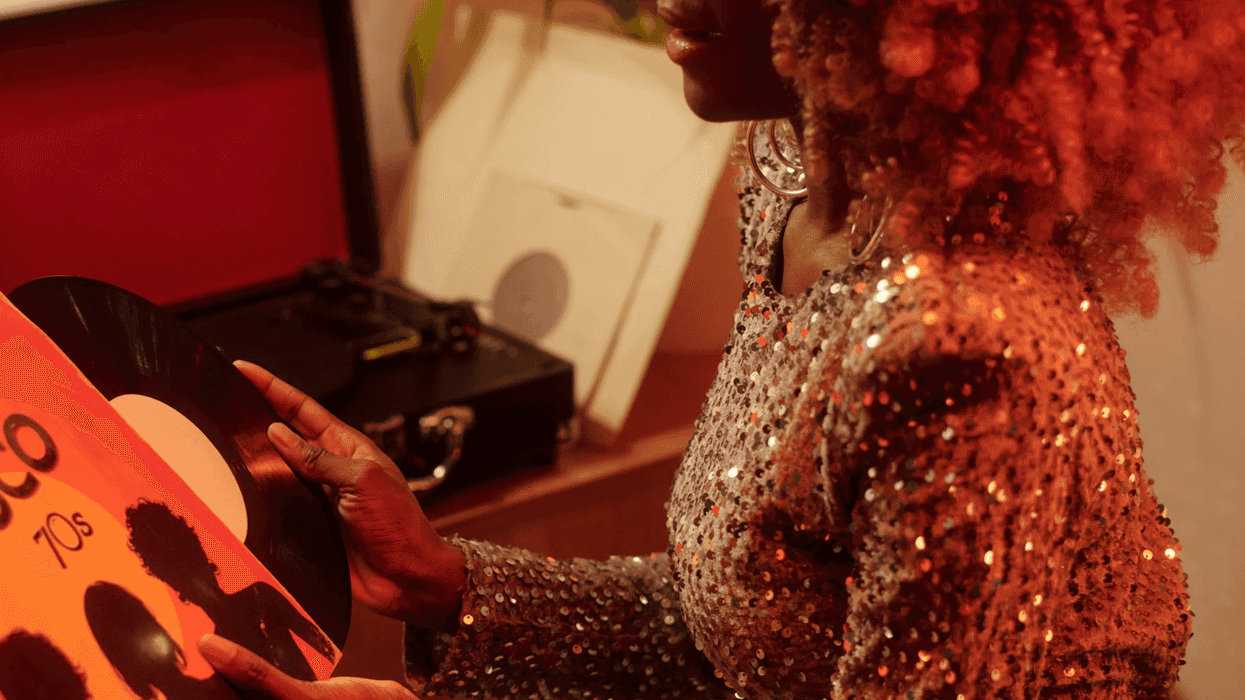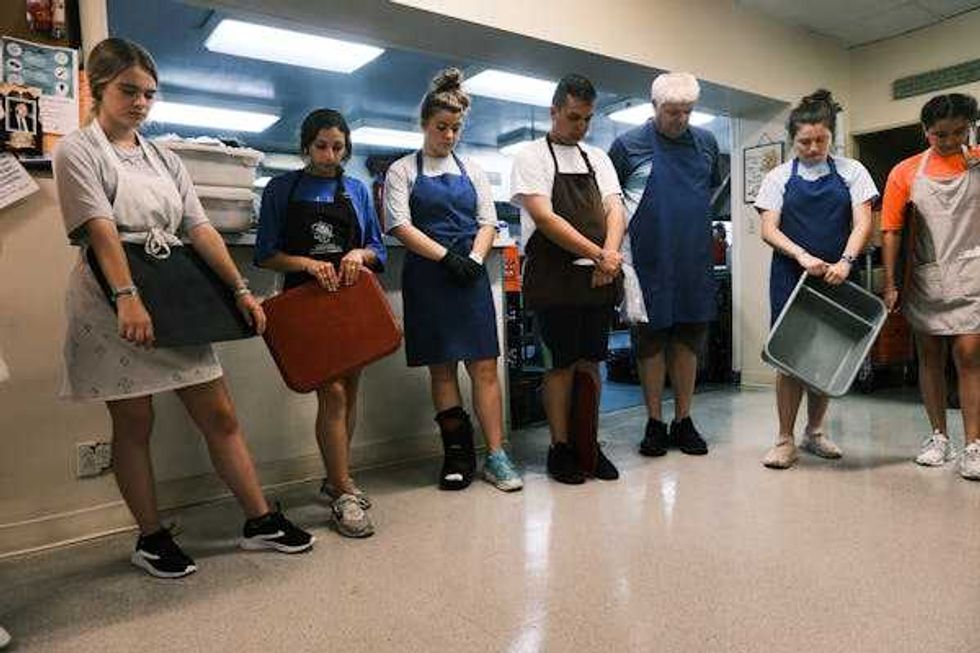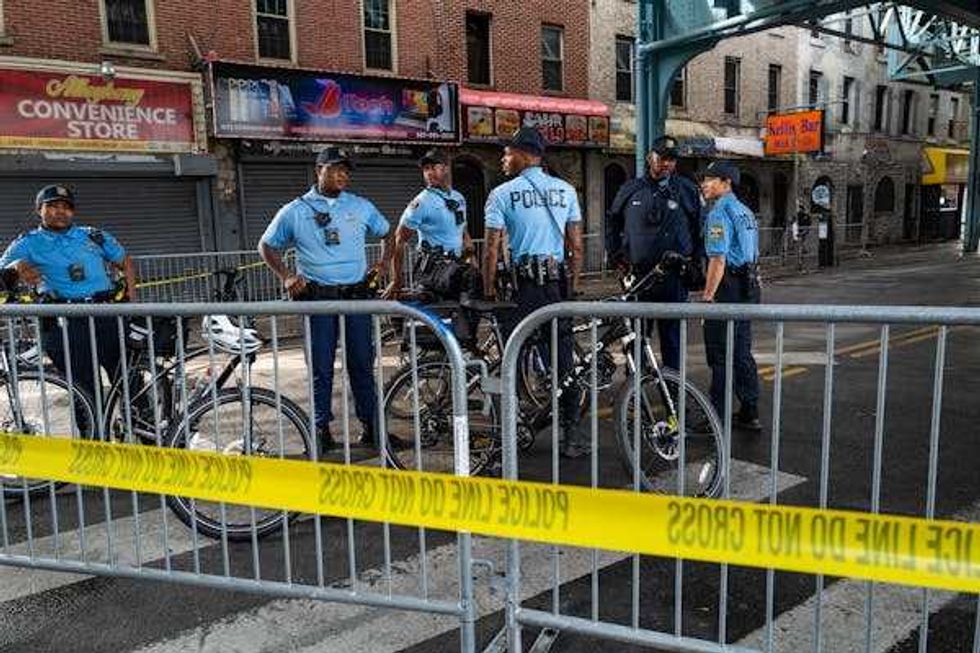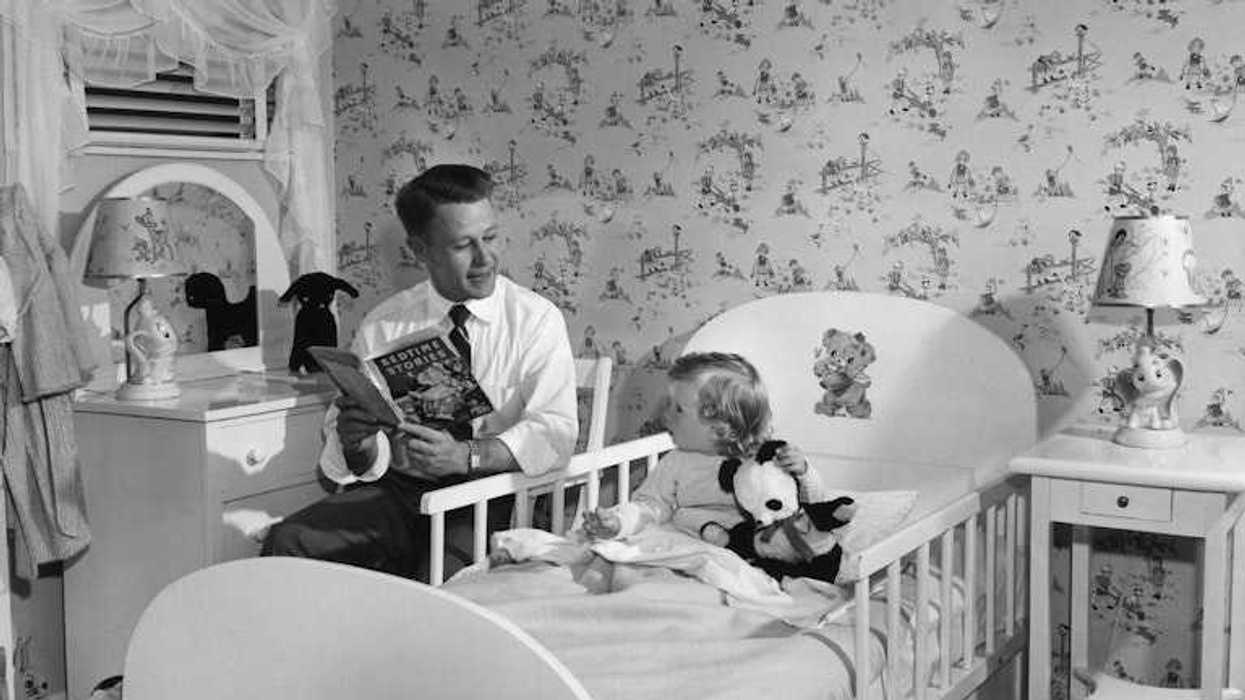It's the top of the sixth inning of Game 7 of the 2016 World Series. The Chicago Cubs’ David Ross, the 39-year-old catcher who has become one of the faces of the feel-good Cubs stories, the well-liked guy playing in his final major league game before retirement, blasts a 1-2 fastball from Cleveland Indians pitcher Andrew Miller over the outstretched glove of Indians outfielder Rajai Davis and over center field wall, giving the Cubs a 6-3 lead.
My coworkers sitting at this Los Angeles pizza joint, sharing space on the red-and-white checkered table cloth, cheered. Customers young and old at adjacent tables cheered.
I said, “Wow”—and then immediately felt bad for the Indians. It wasn’t until that moment that I realized I perhaps wanted Cleveland to win.
Once my own rooting interests became moot Being a journalist and therefore generally having no rooting interest, I nonetheless had been hoping for a Cubs-Indians World Series. I certainly wasn’t alone. The Cubs famously are the long-suffering franchise that hadn’t won a World Series since 1908 and hadn’t even reached the Series since 1945. There are a lot of likable players on the team (and a couple hotheads), along with a likable manager. It’s not difficult to be a Cubs fan.
But the Cubs were built to win. All credit to the front office—including team president Theo Epstein, who presided as General Manager of the Boston Red Sox when that franchise ended its own World Series curse in 2004—but this year there is a difference between feel-good story and underdog story.
As a franchise, the Cubs might be underdogs. As a 2016 baseball team, they most certainly are not. The Cubs were, in fact, the odds-on favorite to win the World Series this year, according to sportsbook odds set before the season.
The Indians, on the other hand, were slightly closer to fitting the underdog bill. Oddsmakers had them in the ballpark of No. 10 in the preseason rankings—still very good, but not Cubs level. Cleveland also has a stout roster, but not as strong as the Cubs’. And for their part, the Indians hadn’t won a World Series since 1948.
And as the Cubs’ feel-good story grew and America got behind them, the Indians were cast, to some extent, as the big, bad enemy. That, of course, means the Cubs become America’s Team, partly because they are perceived to be the underdog.
Why do we like underdogs?
There have been numerous studies around this topic, with the conclusions running from a bigger emotional payoff should the underdog win to a sense that the underdog puts in more effort and overcomes more adversity. There’s also the idea of return on investment, which explains that the emotional investment put into a favored team that ends up winning and isn’t rewarded to the same extent as that same investment in the underdog, should the latter win.
There are impacts on self-esteem and self-efficacy as well, in both positive and negative lights. When a person’s favorite team wins, that person feels better about themselves and exudes more confidence. Likewise, when their favorite team loses, the levels of confidence and self-esteem diminish. The return on investment approach applies here as well, as the benefits to confidence and self-esteem can be greater when the person roots for and/or identifies with the underdog team.
The Cubs were easy to embrace by sports and non-sports fans alike. Non-sports fans can understand their suffering. A 108-year championship drought is ridiculous. Outside of existing Indians fans, how could one not want the Cubs to win? Sure, one still would feel good rooting for the favored team should that team win, but the positive impact wouldn’t compare to backing the cursed Cubs against Cleveland.
But remember, this isn’t New York or Boston we’re talking about, both cities that have won plenty of championships. This is Cleveland. Want to compare the suffering of sports cities? Cleveland has Chicago beat—easily—when it comes to futility. LeBron James did break the city’s championship drought with the Cavaliers’ NBA title last season. If anything, the prospect of the Indians bringing another title to a long-suffering city should have added to their likability.
And had the Indians been playing virtually any other team in the World Series, they probably would have been the sentimental favorites. Instead, they are the anti-underdogs.
And thus, America roots for the Cubs.
It’s the eighth inning of Game 7. The Cubs’ hard-throwing closer, Aroldis Chapman, clearly doesn’t have his best stuff. He’s been overworked in the last couple of games and probably shouldn’t be on the mound at this point. He surrenders a run-scoring double, cutting the Cubs’ lead to 6-4. Then Indians outfielder Davis, who couldn’t quite reach Ross’ homerun earlier, drives a ball over the left-field fence, and just like that the game is tied.
People in the restaurant are cursing. I fear for the emotional well-being of our server, who is wearing a Cubs hat. I again say, “Wow,” while silently feeling good about the Indians comeback.
During the rain delay that followed, Fox reports that Chapman went back to the clubhouse in tears. He had just blown a save in the biggest game of his life—arguably the biggest in Cubs franchise history. Immediately I feel bad for him and start rooting for the Cubs to win. Once they take the lead in the top of the 10th, I’m wanting the Indians to at least make it interesting.
Why is this?
A 1991 study showed that 81 percent of those surveyed rooted for an underdog heading into a best-of-7 series. But if the underdog won the first three games, roughly half of the 81 percent switched allegiances, now perceiving the team down 3-0 as the underdog.
In other words, at some point an underdog no longer is an underdog. At least there’s an explanation for my madness.
The Indians do make it interesting, scoring one run in the bottom of the 10th—but just one— and the Cubs are World Series champions.
The Cubs won. They did it in dramatic fashion, coming back from a 3-1 series deficit. I’m happy for them—and for Chapman, who is credited with the win. But I would have been happier had the Cubs beaten almost any other American League team—one that could more fairly be considered the favorite.
Psychology explains why we’re Cubs fans. But it also hints at why it’s also OK to feel bad for the Indians. After all, the new owners of the longest World Series victory drought are baseball’s new franchise underdog.

















 Volunteers at the St. Francis Inn pray together before serving a meal on July 19, 2021.
Volunteers at the St. Francis Inn pray together before serving a meal on July 19, 2021. Police close down a section of Kensington Avenue to clear a homeless encampment on May 8, 2024.
Police close down a section of Kensington Avenue to clear a homeless encampment on May 8, 2024.


 Left: A robotic arm. Right: Rice grains.Photo credit:
Left: A robotic arm. Right: Rice grains.Photo credit:  A diagram on kidney stones.myupchar/
A diagram on kidney stones.myupchar/ 
 A young person doing their monthly budgetCanva
A young person doing their monthly budgetCanva
 A couple engages in a serious conversationCanva
A couple engages in a serious conversationCanva
 Christy Lam-Julian, a mother in Pinole, Calif., reads to her son in April 2025.
Christy Lam-Julian, a mother in Pinole, Calif., reads to her son in April 2025. Children who read bedtime stories with their parents are likely to benefit from a boost in creativity – especially if they consider questions about the books.
Children who read bedtime stories with their parents are likely to benefit from a boost in creativity – especially if they consider questions about the books.